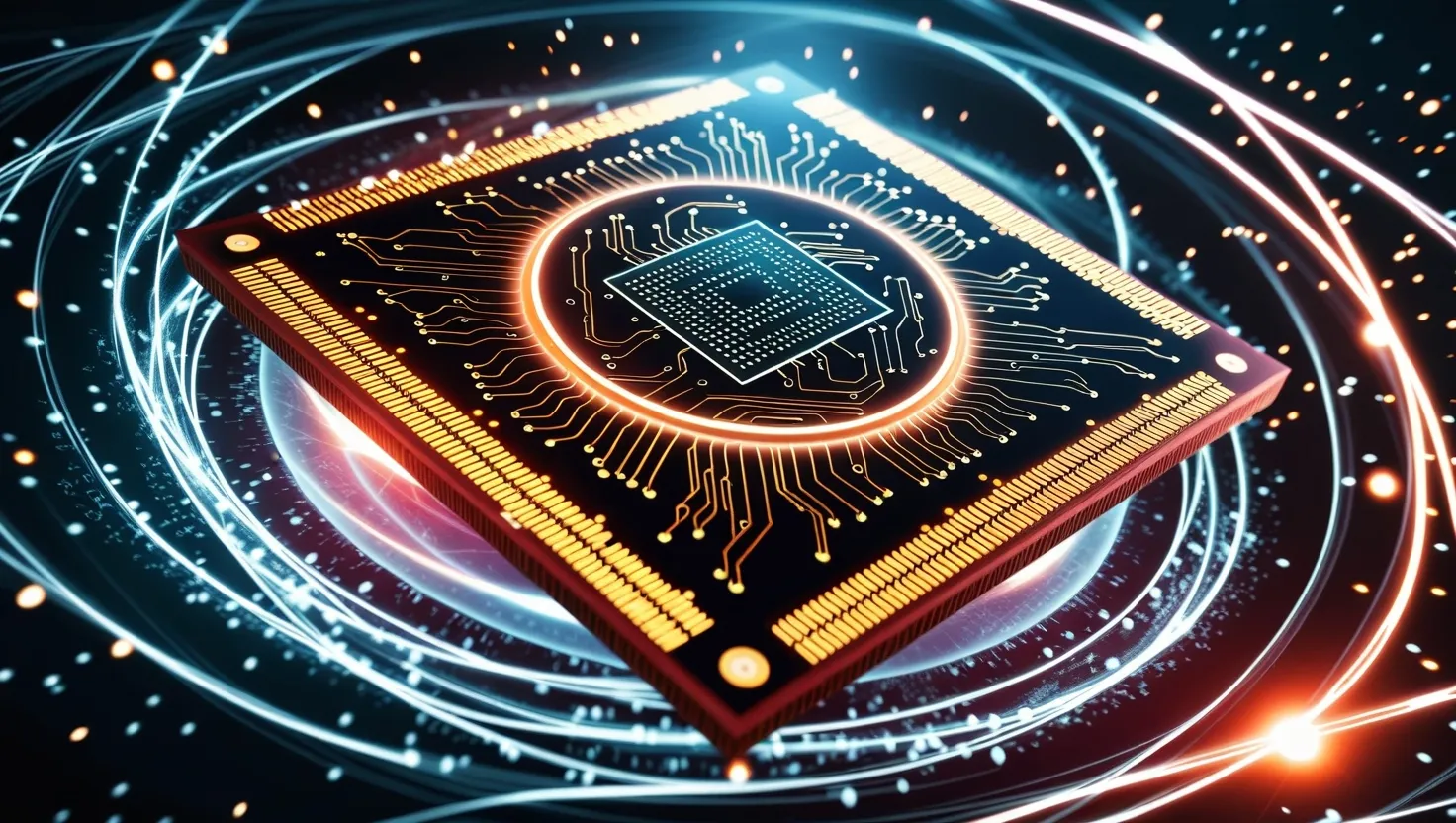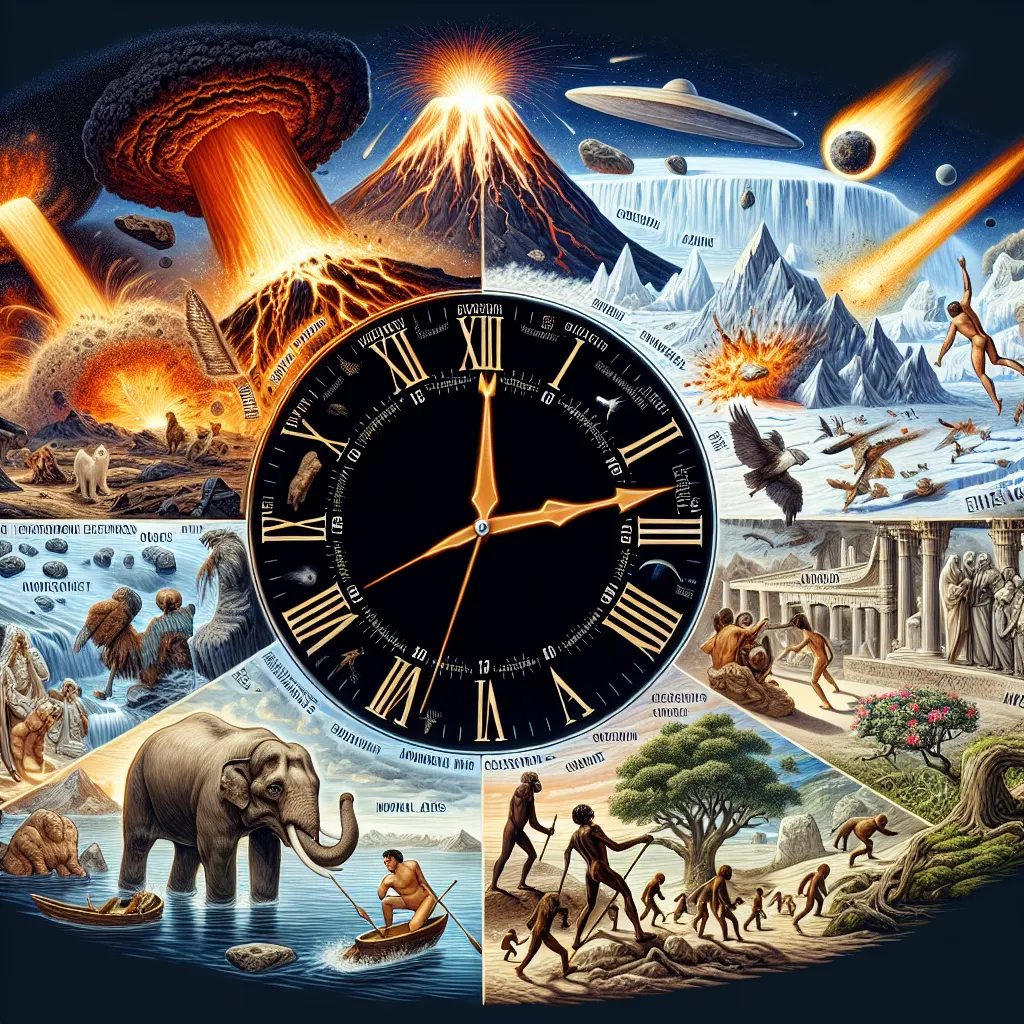In the realm of quantum computing, the past few years have been nothing short of revolutionary. As researchers and scientists push the boundaries of what is possible, we are witnessing advancements that could transform the way we approach complex problems in various fields. Here, we delve into six cutting-edge developments that are reshaping the landscape of quantum computing.
The Quest for Error-Resistant Computing
Imagine a world where your computer can perform calculations without the fear of errors creeping in due to environmental noise or other external factors. This is the promise of topological qubits, a concept that has been gaining significant traction in recent years. By encoding quantum information into the spatial and braiding properties of exotic quasiparticles called non-Abelian anyons, topological qubits offer intrinsic protection against certain types of errors.
“As we advance in the field of quantum computing, we are beginning to realize that the traditional qubit may not be the most robust solution,” notes a researcher involved in the latest breakthroughs. “Topological qubits, with their unique properties, could be the key to making quantum computing more practical and scalable.”
The recent creation of the first-ever experimentally demonstrated “true topological qubit” by a team of researchers from Quantinuum, Harvard, and Caltech is a significant milestone. This achievement involves encoding quantum information in a Z₃ toric code, a mathematical framework that represents quantum states in a way that makes them more resistant to errors. The implications are profound: by reducing the computational overhead of error correction, topological qubits could make quantum computing more accessible and practical for solving complex problems in fields such as cryptography and materials science.
Quantum Supremacy: The Benchmark of Power
Quantum supremacy, the idea that a quantum computer can perform a task that is beyond the capabilities of a classical computer, has been a topic of intense interest. Demonstrations of quantum supremacy are crucial because they serve as a benchmark for the power and potential of quantum computing.
“Quantum supremacy is not just about showing off the capabilities of quantum computers; it’s about proving that these systems can solve problems that are intractable for classical computers,” explains a scientist who has worked on several such demonstrations.
Recent experiments have shown that quantum computers can indeed perform certain tasks exponentially faster than their classical counterparts. These demonstrations not only validate the theoretical predictions but also pave the way for more complex and practical applications of quantum computing.
The Hybrid Approach: Combining Quantum and Classical
One of the most promising areas of research in quantum computing is the development of hybrid quantum-classical algorithms. These algorithms leverage the strengths of both quantum and classical computing to solve problems more efficiently.
“Hybrid algorithms are like having the best of both worlds,” says a researcher working on these projects. “They allow us to use classical computers for tasks where they excel, while leveraging the quantum computer for tasks that require quantum parallelism and interference.”
These algorithms have shown significant promise in fields such as optimization and machine learning. By combining the precision of classical computing with the power of quantum computing, researchers are able to tackle problems that were previously unsolvable.
Advancements in Quantum Error Correction
Error correction is one of the most critical challenges in quantum computing. Quantum systems are inherently fragile and prone to errors due to their sensitivity to environmental noise. Recent advancements in quantum error correction have been instrumental in making quantum computing more reliable.
“Quantum error correction is not just about fixing errors; it’s about preventing them from occurring in the first place,” notes an expert in the field.
Topological error correction, for instance, uses cluster states with topological properties to protect quantum information. This method has been experimentally demonstrated and shows great promise in reducing the effective error rate in quantum systems. Other approaches, such as repeat-until-success protocols, are also being explored to enhance the robustness of quantum computers.
Room-Temperature Quantum Computing: A Game Changer?
One of the biggest hurdles in quantum computing is the need for extremely low temperatures to maintain the coherence of qubits. However, recent research has been exploring the possibility of room-temperature quantum computing.
“Imagine being able to run a quantum computer in your office, without the need for elaborate cooling systems,” says a scientist working on this frontier. “It’s a game changer, not just for practicality but also for accessibility.”
New methods involving “split-electrons” that can act as topological qubits at room temperature are being developed. While still in its infancy, this area of research holds immense potential for making quantum computing more widespread and user-friendly.
Quantum Machine Learning: The Future of AI
Quantum machine learning is another area where significant breakthroughs are being made. By leveraging the power of quantum computing, researchers are developing new algorithms and techniques that can solve complex machine learning problems more efficiently.
“Quantum machine learning is not just about speeding up existing algorithms; it’s about creating new ones that can solve problems that are currently unsolvable,” explains an AI researcher.
Recent advancements have shown that quantum computers can perform certain machine learning tasks exponentially faster than classical computers. This has significant implications for fields such as drug discovery, where the ability to quickly analyze vast amounts of data could lead to breakthroughs in medical research.
The Future Ahead
As we look to the future, it’s clear that quantum computing is on the cusp of a revolution. From topological qubits to room-temperature computing, each of these developments brings us closer to a world where quantum computing is not just a theoretical concept but a practical reality.
“Quantum computing is not just about solving complex problems; it’s about changing the way we think about computing itself,” says a veteran in the field.
So, what does the future hold? Will we see quantum computers in our homes and offices soon? The answer is complex, but one thing is certain: the journey ahead is filled with excitement and possibility.
As Richard Feynman once said, “I think I can safely say that nobody understands quantum mechanics.” But as we continue to push the boundaries of what is possible, we are slowly beginning to understand the immense power and potential of quantum computing.
Questions to Ponder
- How do you think topological qubits will change the landscape of quantum computing?
- What are the potential applications of quantum supremacy demonstrations?
- How can hybrid quantum-classical algorithms be used in real-world problems?
- What are the biggest challenges in implementing room-temperature quantum computing?
- How might quantum machine learning revolutionize AI and data analysis?
These questions and many more are at the heart of the ongoing research and innovation in quantum computing. As we continue to explore and understand these cutting-edge developments, we are not just advancing technology; we are redefining the limits of what is possible.






